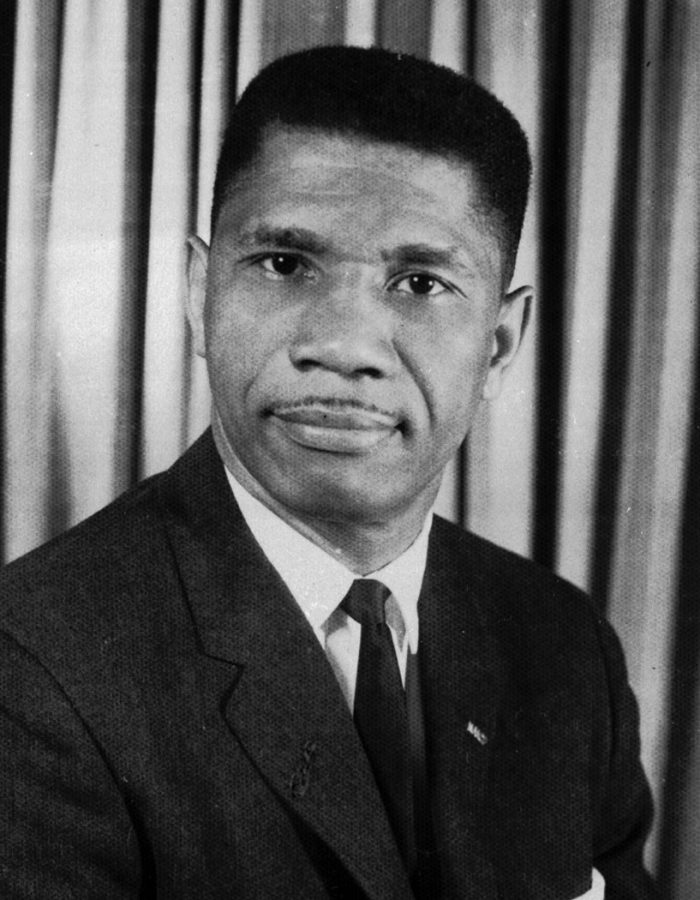Medgar Evers
In honor of Black History Month, every day The Cardinal will feature a prominent and historical Black American, living or dead, who has worked toward change, advancement, and/or world peace. Some of them are heroes, and some are unsung heroes who have made a contribution to society.
February 2, 2021
Medgar Wiley Evers was an American civil rights activist born on July 2, 1925 in Decatur, Mississippi. Medgar Evers was the third of five children born to farmer and sawmill worker James Evers and his wife Jesse. Evers’s childhood was typical in many ways of black youths who grew up in the Jim Crow South during the Great Depression of the 1930s and in the years preceding World War II. The Evers home emphasized education, religion, and hard work. Among his siblings, Evers spent the most time with Charles, whom he idolized. Fast forward he served in World War II participating in the Normandy invasion before going to work for the National Association for the Advancement of Colored People (NAACP) as the state’s first field secretary. He worked to overturn segregation at the University of Mississippi, end the segregation of public facilities, and expand opportunities for African Americans, which included the enforcement of voting rights. As a college graduate, Evers became active in the Civil Rights Movement in the 1950s. He spearheaded demonstrations and boycotts of businesses that practiced racial discrimination and organized voter registrations for African Americans. On June 12, 1963, civil rights leader Medgar Evers was assassinated by a white supremacist outside his home in Jackson, Mississippi. His death sparked outrage across the nation. Later that month, participants in the Walk to Freedom March in Detroit, Michigan, held up signs in Evers’ honor. The national outrage over Evers’ murder increased support for legislation that would become the Civil Rights Act of 1964. Immediately after Evers’ death, the NAACP appointed his brother Charles to his position.


